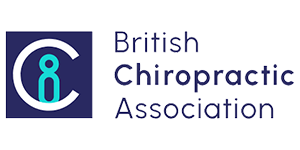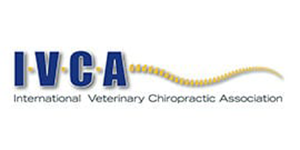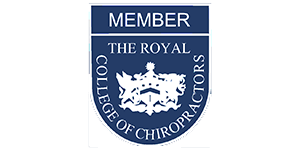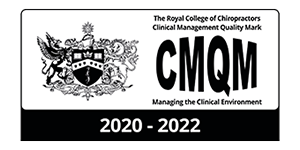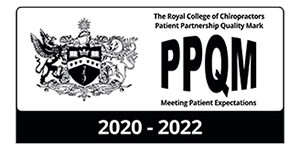Small animals such as dogs and cats can book directly via our human clinic reception team on 01224 211517 or click below.
Large animals you can contact us on 01224 211517 or click below.
Book Now
Chiropractors evaluate the function and structure of the spine, extremities, and skull. Based on their examination and the animal’s clinical history, they then "adjust" any restrictions (vertebrae and joints that are out of alignment or abnormally restricted "stuck in one position and not fully moving in its normal range).
Emma prefers to use the phrase "stuck" or "fixed" as it is more anatomically accurate.
Fixations are “gently manipulate” back into a normal range of motion by using a short “thrust” that is applied very specifically in the correct direction. The bone is not out of place!!! Anyone who uses this type of terminology is an amateur at best.
Due to the expertise required for this technique, Chiropractic treatment can ONLY be performed by a qualified Doctor of Chiropractic (5 years medical training, or a Qualified Vet who has studied Animal Chiropractic and is registered with the IAVC). Please make sure that the practitioner that you choose is registered with RAMP (the gold standard musculoskeletal therapists’ database). Please be aware that all Chiropractors are not the same. Make sure that your practitioner is fully trained and Gold standard by visiting https://ivca.de/ and http://www.rampregister.org/
In much the same way as humans, animals can develop problems as a result of sudden trauma such as boisterous play, falls or car accidents. They can also be affected by ‘lifestyle ‘factors such as handling methods, repetitive activities/training and stress.
Even in the absence of pain, imbalances in an animal’s body can affect muscle co-ordination and skeletal mobility and therefore change their behaviour or performance.
Chiropractic treatment can help to remove these imbalances, enabling your animal to be at its best.
Chiropractic can be used in acute situations when an animal is in pain and in more chronic situations to help to decrease the symptoms of degenerative problems such as hip dysplasia and arthritis. We use drug-free pain options such as laser therapy, acupuncture and remedial massage.
Chiropractic can optimise performance for competition animals or can be used as a preventative treatment to maintain fitness.
We commonly see a large range of dogs and horses from domestic pets to agility or competition animals. They all have unique requirements, so their treatments are tailor made.
We have geriatric dog programmes specifically to improve quality of life and puppy and foal check-ups to identify smaller issues that could grow if left unchecked.
Most small animals show visible improvement after 1-3 treatments. Acute problems often respond quickly, while longstanding problems may require further sessions.
Animals with chronic conditions such as hip dysplasia or arthritis respond very well to regular supportive treatment every 2-3 months.
Working or competition animals can benefit from regular check-ups so that underlying problems can be identified and treated before they begin to impact on performance. Many of our athletes are seen monthly for preventative care.
Once the pet owner has filled out a detailed intake form, a case history will be taken. This case history consists of obtaining information from the owner and information from prior veterinary services including radiographs and laboratory analysis. After the case history, a chiropractic examination will be performed on your animal. This examination includes gait analysis, posture analysis, orthopaedic and neurological examination, muscle palpation, and extremity and vertebral joint palpation. Once the history and examination are complete the animal chiropractor will develop a treatment plan and make recommendations.
This therapy is not limited to an injured or sick pet. Healthy and athletic animals are ideal candidates for chiropractic examination and care. Maintaining proper structural alignment permits optimal function of the muscles, nerves and tissues supporting the joints, resulting in improved movement, stance and flexibility. This alignment promotes increased agility, endurance, and overall performance. Broader benefits include superior immune function, healthier metabolism and a vibrant nervous system, facilitating your animal’s natural ability to heal. Chiropractic can enhance the quality of your pet’s life, ensuring active and healthy years.
More and more often veterinarians are utilizing animal chiropractors in their offices. They do so because animal chiropractors examine and treat areas of biomechanics and the functional nervous system that often go unnoticed by traditional veterinary care. By working in conjunction with veterinarians, animal chiropractors aid in restoring your pet’s optimal health by treating the whole patient.
When your pet just "isn’t quite themselves” but doesn’t show any signs of obvious lameness. Or when the vet has "done all they can". If the animal is older and you want them to feel as good as they can in their twilight years. Or if your animal just seems a little down or grumpy when handled, ridden or groomed - call us and we will reduce the biomechanical stresses/strains to allow them to move properly again and improve their health.
To answer this, it is important to remember that the entire horse isn't being adjusted, but rather a specific joint in the skeleton.
Traditionally horses would have lived on the open plains, constantly on the move, always grazing therefore always with their heads lowered. The main form of locomotion is the walk or trot, only using gallop as a method of fleeing predators, or in play. In domestication, humans have forced confinement in the stable or in the small paddock on to these horses, curtailing the ability to graze little and often, and only feeding them at mealtimes. We then expect these animals to perform a specific task, carry a rider, and perform to the best of their ability. All these factors reduce the desired optimal performance that we require from our animals.
Abnormal weight bearing and altered gait can subsequently overwork or injure associated back muscles.
Back injuries can result in increased forces to the joints, resulting in lameness, or gait alterations in the feet and legs, as the animal tries to protect its sore back. Unless the primary cause of the back pain is identified and treated, most horses will have recurring back pain when returned to work after a period of medication and or rest.
Absolutely. Rehabilitation and injury prevention are a key aspect of our work with animals. Riders are very aware that their horses should undergo a full fitness programme before commencing competitive work, but we also consider this for our dogs as well.
Dog Consultations: £95
Dog follow up treatments: £75
Cat consultations: £70
Cat follow ups: £70
New horse consultations: £115
Mullti horse visits (+4 same yard) £90 per horse for consultations and £85 per horse for follow-up treatments when booked together.
Tissue healing Laser therapy standalone packages (5 sessions) for £400.


